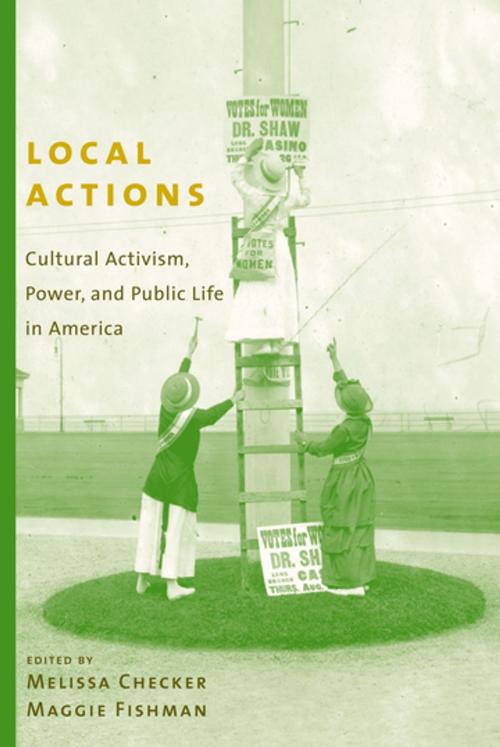Local Actions
Cultural Activism, Power, and Public Life in America
Nonfiction, Social & Cultural Studies, Political Science, Government, Local Government, Social Science, Anthropology| Author: | Melissa Checker, Maggie Fishman | ISBN: | 9780231502429 |
| Publisher: | Columbia University Press | Publication: | February 25, 2004 |
| Imprint: | Columbia University Press | Language: | English |
| Author: | Melissa Checker, Maggie Fishman |
| ISBN: | 9780231502429 |
| Publisher: | Columbia University Press |
| Publication: | February 25, 2004 |
| Imprint: | Columbia University Press |
| Language: | English |
Activism is alive and well in the United States, according to Melissa Checker and Maggie Fishman. It exists on large and small scales and thrives in unexpected places. Finding activism in backyards, art classes, and urban areas branded as "ghettos," these anthropologists explore the many routes people take to work toward social change.
Ten absorbing studies present activist groups across the country—from transgender activists in New York City, to South Asian teenagers in Silicon Valley, to evangelical Christians and Palestinian Americans. Each one examines a social change effort as it unfolds on the ground. Through their anthropological approach these portraits of American society suggest the inherent possibilities in identity-based organizing and offer crucial in-depth perspectives on such hotly debated topics as multiculturalism and the culture wars, the environment, racism, public education, Native American rights, and the Christian right.
Moving far beyond the walls of academia, the contributors address the complex issues that arise when researchers have stakes in the subjects they study. Scholars can play multiple roles in the activist struggles they recount, and these essays illustrate how ethnographic research itself can become a tool for activism.
Activism is alive and well in the United States, according to Melissa Checker and Maggie Fishman. It exists on large and small scales and thrives in unexpected places. Finding activism in backyards, art classes, and urban areas branded as "ghettos," these anthropologists explore the many routes people take to work toward social change.
Ten absorbing studies present activist groups across the country—from transgender activists in New York City, to South Asian teenagers in Silicon Valley, to evangelical Christians and Palestinian Americans. Each one examines a social change effort as it unfolds on the ground. Through their anthropological approach these portraits of American society suggest the inherent possibilities in identity-based organizing and offer crucial in-depth perspectives on such hotly debated topics as multiculturalism and the culture wars, the environment, racism, public education, Native American rights, and the Christian right.
Moving far beyond the walls of academia, the contributors address the complex issues that arise when researchers have stakes in the subjects they study. Scholars can play multiple roles in the activist struggles they recount, and these essays illustrate how ethnographic research itself can become a tool for activism.















